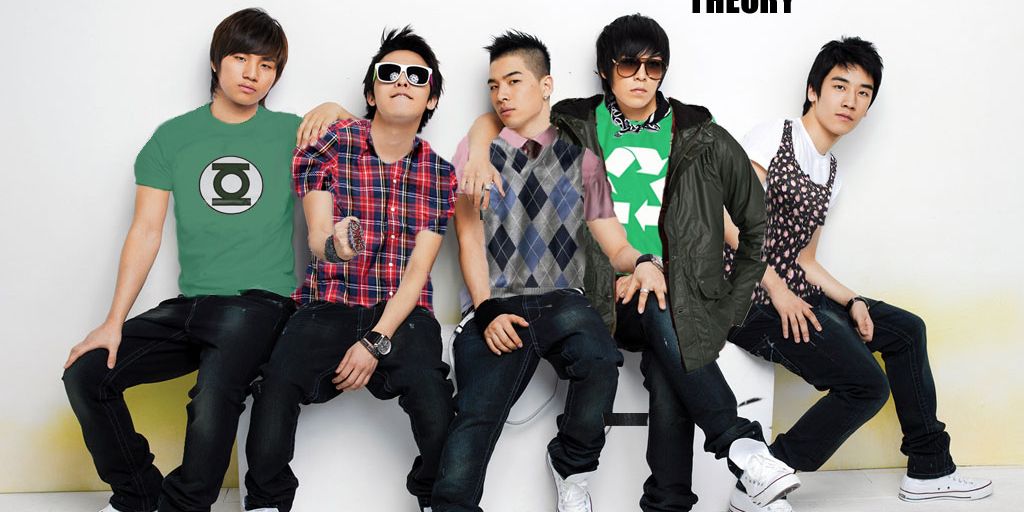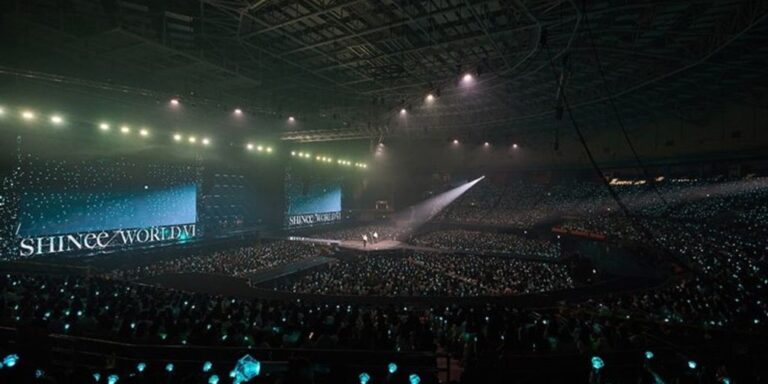
The global phenomenon of K-pop has extended its influence beyond the music charts and into the realm of television and cinema. K-pop soundtracks, particularly in Korean dramas (K-dramas) and movies, have become a significant cultural force. These soundtracks not only enhance the emotional depth and storytelling of these visual mediums but also serve as a powerful tool for promoting K-pop artists and their music to a broader audience. This article explores the intricate relationship between K-pop soundtracks and the world of K-dramas and movies, examining their impact on storytelling, artist careers, and the broader entertainment industry.
Key Takeaways
- K-pop soundtracks play a crucial role in the success and emotional impact of K-dramas and movies.
- Original soundtracks (OSTs) from K-dramas can be enjoyed independently, contributing to their popularity.
- K-drama OSTs have significantly boosted the careers of both established and emerging K-pop artists.
- The visual and aesthetic elements of K-pop have influenced the cinematography and production values of Korean television and movies.
- The symbiotic relationship between K-pop and K-dramas has resulted in mutual promotion and cross-promotion, benefiting both industries.
The Symbiotic Relationship Between K-Pop and K-Dramas
K-Pop’s popularity has significantly boosted the success of Korean dramas, also known as K-dramas. K-Pop artists often lend their voices to the soundtracks of these dramas, enhancing the emotional impact of the storytelling. This not only elevates the viewing experience but also promotes the artists and their music to a wider audience. Over time, music has become an inseparable part of the true K-drama experience.
The Role of Original Soundtracks (OSTs) in K-Dramas
Independent Enjoyment of OSTs
Original soundtracks (OSTs) in K-dramas are unique because they can be enjoyed independently of the show. Even if you haven’t watched the drama, the music still holds its charm. Many tracks are reminiscent of modern K-pop songs, making them popular even outside the context of the drama.
OSTs as Storytelling Tools
OSTs play a crucial role in driving the plot forward. They add emotional depth to scenes and help convey the story’s mood. Superhit K-dramas like Crash Landing On You and Descendants of the Sun owe part of their success to their compelling original songs.
Popular K-Drama OSTs
Some K-drama OSTs have become iconic over time. Here are a few popular ones:
- Crash Landing On You
- Descendants of the Sun
- Search: WWW
- Hospital Playlist
- Something in the Rain
- One Spring Night
A hit OST can significantly boost the popularity of a K-drama, making it memorable for fans and newcomers alike.
Boosting Careers: How K-Drama OSTs Elevate Artists
K-Drama OSTs have a unique way of boosting the careers of artists. These soundtracks often feature songs by both well-known and emerging singers, giving them a platform to reach a wider audience. This exposure can be a game-changer for many artists, helping them gain popularity and recognition.
Success Stories of Artists
Many artists have seen their careers skyrocket thanks to K-Drama OSTs. For example, the singer Punch gained immense popularity after her collaboration "Stay With Me" with EXO’s Chanyeol for the drama Goblin. Similarly, Gaho shot to fame with his song "Start Over" for Itaewon Class. These success stories highlight the significant impact that a hit OST can have on an artist’s career.
Impact on New and Emerging Singers
K-Drama OSTs also provide a valuable opportunity for new and emerging singers. While it can be challenging for lesser-known artists to get a chance to sing for an OST, those who do often find that it opens doors to new opportunities. The popularity of these soundtracks helps many relatively unknown singers gain recognition and build their careers.
Challenges for Lesser-Known Artists
Despite the potential benefits, there are also challenges for lesser-known artists. It is often difficult for them to get an opportunity to sing for an OST, as these songs generally go to already famous singers. This makes it rare for new artists to break into the scene through OSTs, but when they do, the rewards can be substantial.
K-Pop’s Influence on Cinematic Storytelling and Aesthetics
K-pop’s visually appealing music videos, elaborate choreography, and fashion-forward aesthetics have significantly impacted the storytelling and visual style of Korean television and movies. K-pop’s emphasis on captivating visuals and attention to detail has influenced the cinematography, fashion choices, and production value of Korean content. This influence has led to visually stunning productions that captivate audiences and contribute to the distinctiveness of K-dramas and films.
Economic Impact of K-Pop and K-Dramas on South Korea
Global Interest and Cultural Export
The Hallyu wave has brought immense global interest in South Korean culture, from TV shows and movies to food. This surge in popularity has significantly boosted South Korea’s economy. K-pop alone is generating about $10 billion, showcasing its tremendous economic impact.
Incorporation of Western Elements
Many new K-pop performers are now incorporating Western pop elements, including input from Western songwriters, to broaden their listener base. This fusion has helped K-pop amass a large following in the West, further enhancing its economic contributions.
Economic Benefits to the Entertainment Industry
K-pop’s popularity has played a crucial role in the success of Korean dramas, also known as K-dramas. K-pop artists often contribute to the soundtracks of these dramas, enhancing the emotional impact of the storytelling. This symbiotic relationship has led to cross-promotion and mutual benefits, boosting both the music and television industries.
The rise of K-pop has significant economic implications, not only boosting the music industry but also related sectors globally.
Fashion and Beauty Industry
The fashion and beauty industries in South Korea also benefit from the influence of K-pop idols. Collaborations between K-pop artists and major global brands have led to increased demand for Korean-inspired fashion, further contributing to the economy.
Criticism and Challenges in the K-Pop and K-Drama Industry

Legitimate Criticisms
The success of K-pop and K-dramas does not come without legitimate criticism. Some people like K-dramas because of the type of story told or they like a strong story arc that allows the story and the relationships featured to develop more. However, the industry is not immune to scandals and controversies, including issues related to contract disputes, bullying, dating bans, and sexual harassment. These scandals can tarnish the reputation of idols and agencies, leading to public outrage and legal battles.
Industry Pressures and Mental Health
K-pop artists face several challenges in the industry, both in Korea and internationally. One challenge is South Korea’s mandatory military service for men, which disrupts education and career development. Additionally, artists may face challenges in gaining recognition, regular performances, and liveable earnings, all of which can impact their creativity and well-being.
The pressures of maintaining a perfect image and meeting high expectations can take a toll on the mental health of artists.
Balancing Artistic Integrity and Commercial Success
While K-pop undeniably contributes to the global spread of Korean culture, its dominance in the entertainment industry poses challenges to the preservation and promotion of traditional Korean arts. Efforts to strike a balance between promoting contemporary pop culture and preserving traditional arts are essential to safeguarding Korea’s cultural heritage for future generations.
Conclusion
The impact of K-pop soundtracks in dramas and movies is undeniable. K-pop has not only elevated the emotional depth and storytelling of K-dramas and films but has also played a crucial role in promoting artists and their music to a global audience. The symbiotic relationship between K-pop and K-dramas has led to cross-promotion and mutual success, with original soundtracks (OSTs) becoming popular in their own right. These OSTs have provided a platform for both established and emerging artists, boosting their careers and expanding their fan base. Moreover, the influence of K-pop extends beyond music, shaping the aesthetics, cinematography, and production values of Korean content. As K-pop continues to gain international acclaim, its integration into dramas and movies will likely remain a significant factor in the global popularity of Korean entertainment.
Frequently Asked Questions
How do K-pop soundtracks enhance the emotional impact of K-dramas?
K-pop soundtracks, often referred to as OSTs (Original Soundtracks), are crafted to complement the narrative and emotional arcs of K-dramas. The music amplifies key moments, heightening the emotional resonance and making scenes more memorable for viewers.
Can K-pop OSTs be enjoyed independently of the dramas?
Yes, many K-pop OSTs are designed to be standalone musical pieces that can be enjoyed independently of the dramas. Their quality and appeal often make them popular even among those who haven’t watched the associated shows.
How do K-drama OSTs impact the careers of K-pop artists?
K-drama OSTs can significantly boost the careers of K-pop artists by exposing their music to a broader audience. Successful OSTs can lead to increased popularity, higher streaming numbers, and more opportunities within the entertainment industry.
What are some popular K-drama OSTs?
Some popular K-drama OSTs include ‘Stay With Me’ from Goblin, ‘Start Over’ from Itaewon Class, and the soundtracks from Descendants of the Sun and Crash Landing On You. These OSTs have been widely appreciated for their musical quality and emotional depth.
What criticisms exist regarding the K-pop and K-drama industry?
Criticisms of the K-pop and K-drama industry include concerns about industry pressures, mental health issues among artists, and the balance between artistic integrity and commercial success. There are also discussions about the challenges faced by lesser-known artists in gaining recognition.
How has K-pop influenced the visual aesthetics of K-dramas and movies?
K-pop’s emphasis on captivating visuals, elaborate choreography, and fashion-forward aesthetics has significantly influenced the visual style of K-dramas and movies. This has led to productions with high production values, stunning cinematography, and distinctive fashion choices.




Leave a Comment